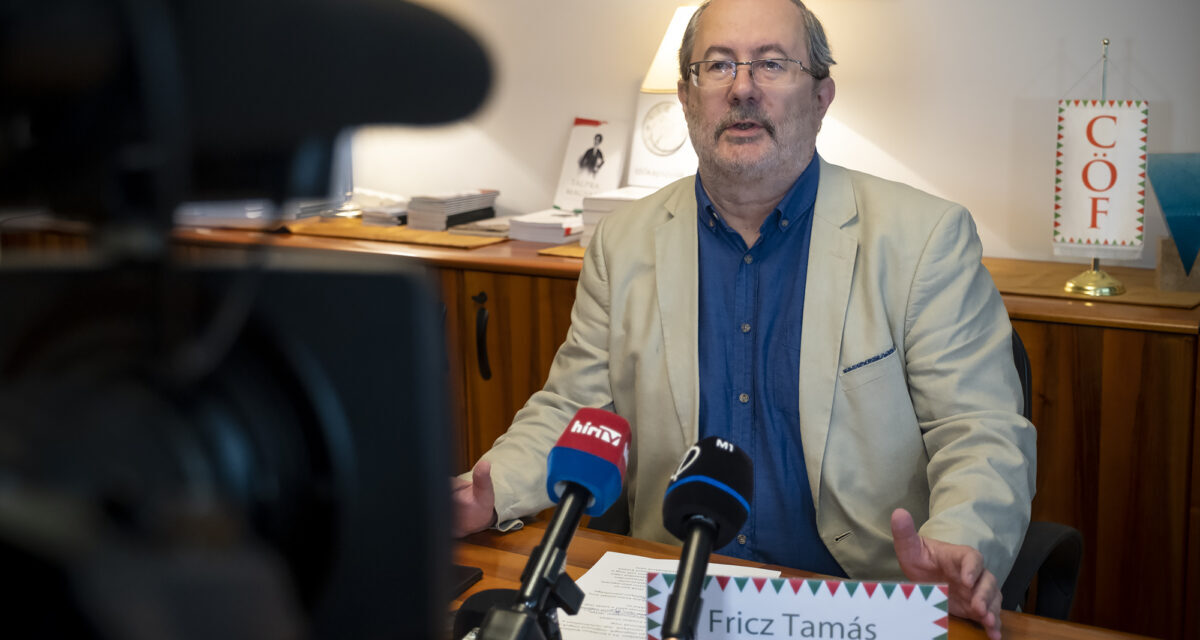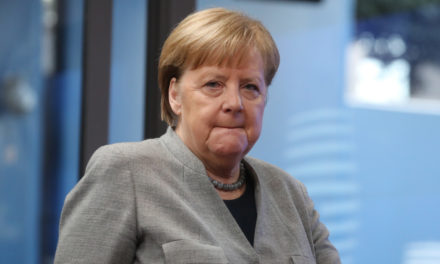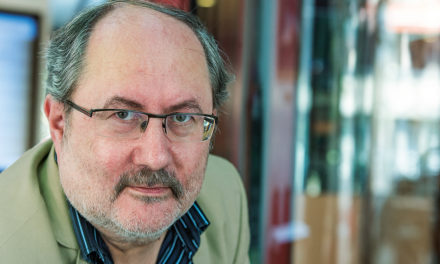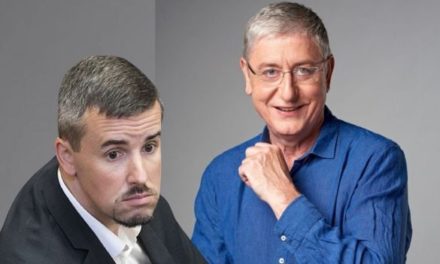The Italian politician used the opportunity to promote the centralization of the union.
It is well known that long before half a year of the Hungarian EU presidency, Ursula von der Leyen, the President of the European Commission, commissioned Mario Draghi, the former banker and politician, to develop a program to improve the competitiveness of the Union, which is in economic crisis. This is a clear case of leaving the cabbage to the goat.
It's worth getting to know Mr. Draghi - who is not a little "dear" to us - so that we can see it clearly through him: we really have had enough of this union! I repeat: from this union.
Mario Draghi was previously the managing director of the giant investment company Goldman Sachs, and then took over the management of the European Central Bank in 2011, until 2019, when Christine Lagarde - who before her was the head of the International Monetary Fund - took his place. Mario Draghi's excellent career continued: he was the unelected Prime Minister of Italy between 2021 and 2022, and led a government called experts in his country on behalf of President Sergio Mattarella.
These are the most well-known pieces of information about Draghi, but the more essential, more precisely important ones are of course missing.
Among other things, he is a freemason, and he is also a member of three globalist organizations, one of which is the Trilateral Commission (it was founded in 1973, mainly on the initiative of Henry Kissinger, Zbigniew Brzezinski and David Rockefeller), and the other - they can't guess - the Bilderberg group.
He attended the meetings of the latter quite often, namely in 1994, 1995, 2002, 2004 and 2007. It should also be mentioned that it is also a member of the so-called Group of 30, which is also a globalist, supranational formation.
Everything can be said about Mario Draghi, except that he is not strongly connected to the dominant circles of the global financial elite. After that, the only question is: what can be expected of him when he is entrusted with saving the union, while all his previous interests, attractions and connections tie him not to the EU or his country, but to global circles?
In any case, he wrote his 400-page paper, which was criticized even on the left-liberal side of the union that was connected to him; many people find its meaning quite disheartening, which is good for everything, except for pulling the EU out of trouble.
On the other hand, it is clear that Draghi used the big occasion to promote the further centralization of the union.
That is why he emphasizes that the principle of consensus must be abolished for decisions, since there are those in the European Council who exercise their right of veto to prevent the taking of important steps (the question is, to whom are these steps important), in other words, it would gallop further towards the long-desired federalism, in which the European The Commission would practically function as a government over the member states.
There are those who said in connection with the 400 pages that Draghi would turn Europe into a paradise for the neoliberal financial elite, with the effective contribution of Ursula von der Leyen.
According to critics, the Draghi plan is still based on a nonsensical energy policy and an ill-considered productivity concept. Energy policy is quite simply suicide: the focus is still on an "energy transition" that aims for zero carbon dioxide emissions in Europe by 2050, which can actually be considered a bad joke. Zero emissions is simply an unattainable goal, this is already clear - several people want to modify it - but even if the union were to "do" this, it would not change anything about the explosive growth of the world's carbon dioxide emissions. Not least because Europe is only responsible for 7-8 percent of carbon dioxide emissions. These efforts count for nothing, since in the meantime the really decisive, so-called developing countries - from China to India to Latin America - increase carbon emissions without any reservations, because they do not want to fall behind in development.
Draghi simply does not face the EU's energy needs, which cannot be solved with wind and solar energy, as many have already proven, not to mention the importance of nuclear energy. Cheap Russian gas would be needed, but in comparison, for Draghi, the really important goal is to defeat Russia and destroy it economically.
He talks about austerity, even though a healthy industrial policy is needed, and an economic-trade war against China is also a very bad solution for Europe, since Europe needs a lot of products that it can get mostly from China, such as medicines, chemicals, rare metals, etc., and not even then we talked about the tariffs on electric cars, which could simply bankrupt the German car industry (and it could brutally affect us too), while we focused very large forces on for battery production and electric car production, both through China and Korea).
According to Draghi, a lot of money is needed for the investments, which would be joint European investments with big companies, so here too the subordination of the member states would appear on the one hand, as well as another plan to take out huge loans.
And this is the moment when I have to ask you: have you heard of the ESM, i.e. the European Stability Mechanism? This organization is the permanent bailout fund of the Eurozone, it started with 500 billion euros, but this can be increased at any time if the leaders of the organization decide that they need a loan to save some countries. And the withdrawals must be covered by European taxpayers if the given country proves unable to do so.
Surprisingly, the ESM has never been ratified by all member states.
Everything is decided by the ESM's board of directors: it can therefore take out loans to save certain member states, and the member states must bear the costs. There is no appeal here either. Furthermore, ESM leaders are exempt from court proceedings and enjoy immunity in relation to their official affairs. The ESM is therefore an unelected, supranational globality – but it still belongs to the EU – which can allocate an unlimited number of rescue funds to banks. Nicholas Rockefeller - I wonder what he's doing here? - he mockingly called this that they have a KMA card (reluctantly, but I'll write what it means: "everyone can do a favor"), that is, they do what they want.
And here comes the point, which is why I quoted the whole ESM here: Mario Draghi is also among the initiators and founders of the ESM, who became the President of the European Central Bank in 2011, just one year before the establishment of the ESM. It belongs to the bank that, during the global financial crisis, threw money out of the "air" to the banks in need, which of course the citizens had to pay in the end. (But we already know: some banks are "too big to fall", i.e. they are too big to go out of business.)
I would like to note here that in 2012, Slovakia reviewed the operating principles of the ESM and resisted the implementation of the system, seeing its complete anti-democratic and even tyrannical potential. They said at the time: we will receive one billion euros net, but after that we are responsible for 13 billion euros, if that decision is made in the ESM.
Do you know what the consequence was? The government led by Iveta Radicová fell within a few days. The leadership of both the EU and the ESM acted forcefully against the resistant government, and their will proved to be stronger than the resisters. Twelve years have passed since the establishment of the ESM, and since then, of course, for many reasons, the standard of living of Europeans has plummeted.
In summary: Mario Draghi has already proven himself both at the head of the ECB and in relation to the ESM. He proved that he does not consider the interests of European citizens to be primary, but the interests of the big banks and bankers - since he is one of them, he belongs to them, he is their man. I think Ursula von der Leyen knows that. The only thing that is really important to him is that Viktor Orbán's competitiveness package, the Budapest declaration, is not actually observed and taken seriously by the union, since it is not their dog's puppy. They need Draghi.
And for us, one of our biggest struggles in 2025 will be to ensure that Draghi's therapy does not become dominant in the union - because then the union will be over and so will we - but rather the realistic, sane Budapest declaration initiated by Viktor Orbán in November. 2025 will therefore be the year of the clash between Draghi's plan and the Budapest declaration, and the stakes are enormous.
Here we are, the union falling into the lap of the United States and economic bankruptcy unless the Patriots and Donald Trump save us. But it won't be easy either. Ceterum censeo: I have had enough of this union.













